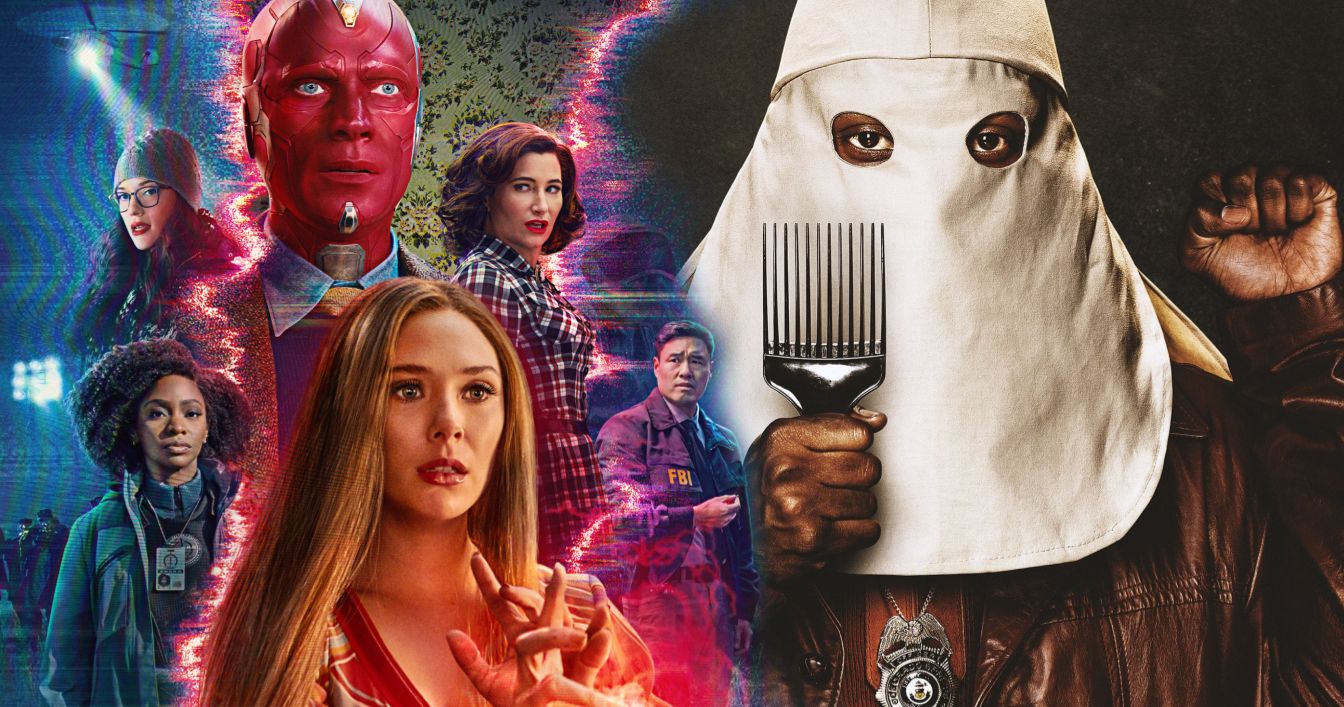Marvel's WandaVision became a huge success on Disney+, proving the studio's experiment to integrate a television-specific line of content to the wider Marvel Cinematic Universe fruitful and profitable. The show notably delved into the representation of various themes like mental stability, grief, and depression and went high on metaphor through allegorically using "sitcoms" to reflect on the characters' backdrop and their emotions.
The show served both as an origin story and a follow-up and allowed secondary characters like Scarlet Witch and Vision to enter the mainstream of the MCU superheroes. However, the show also left some unanswered questions, probably setting up a sorcery-filled future for the MCU and Wanda's appearance in Doctor Strange in the Multiverse of Madness.
Shedding some light on details concerning the show's production and conceptualization, Kevin Feige and WandaVision's creative team answered some of those questions in an interview with Rolling Stone. One of those answers surprisingly revealed how the title WandaVision topped the list of other potential names for the show. The title, which seems like a simple amalgamation of two titular characters leading the show, Wanda Maximoff (Elizabeth Olsen) and Vision (Paul Bettany), is more than what it seems. As it turns out, WandaVision is more than just a simple moniker.
There was a tonne of thinking and research into characters' lore that all went into coming up with the title. However, most of the source material that inspired the show was named directly after the characters Wanda/Scarlet Witch and Vision. Marvel Studios President Kevin Feige, the man behind the brains that conceptualized the entire Marvel Cinematic Universe as we know it actually adapted the name from Spike Lee's BlacKkKlansman.
Kevin Feige realized that the Spike Lee movie title combined the themes that it explored into that title in a subtle and eye-catching manner and decided to name the show in a different style. In the interview, Feige stated,
"I didn't want to call the show Wanda and Vision or The Scarlet Witch and Vision. I was at the AFI [American Film Institute] luncheon in 2018 and I remember looking at the board where it listed the top 10 films and seeing BlacKkKlansman. I remember thinking, 'How cool is that? They just mushed those two words together and the audience just accepts that as a title.' So I thank Spike Lee for making BlacKkKlansman. I know that's the weirdest connection ever, but that's how it came about."
If you see Spike Lee's BlacKkKlansman, the film delves into the rise of Ku Klux Klan and its members spreading racist propoganda in the country; whereas, a Black police officer, the first in Detroit, tries to bring down their agendas while fighting racism in his own department.
The film featured John David Washington as Ron Stallworth, who along with the help of his white partner, Detective Philip, infiltrated the Ku Klux Klan and tries to expose the organizations' local chapter. The title combines Black (representing involvement of a Black individual in the investigation and the racist ideologies against Black people), KkK (a clear abbreviation for Ku Klux Klan), and Klansman (probably an allusion to the infiltration of a Black man into the Klan). The title was a simple moniker, but was subtly designed by conjoining these three names into one.
Similarly, WandaVision is not simply titled after the name of the two titular characters. The title actually conjoins the two names. If you try to theorize it in a way, the title may draw parallel to how Wanda describes to Vision what he is as the Hex collapses on them. She states how Vision is a part of her emotions.
The conjoined names indicate how this time, Wanda and Vision were actually one, with Vision being just a fragment of Wanda's grief and love. Interestingly, Tom Hiddleston has also spoken about how the title stylization of his upcoming Disney+ original set in the MCU, Loki also has a significant meaning. He commented how the changing logos indicate towards shape-shifting abilities of his character and how it could factor into the different realities that the show would explore.
It makes sense how Marvel would have gone through some serious discussion on WandaVision's title, given the show had a major emotional and psychological edge. The show's concept was first of a kind and the studio would have preferred to have a successful kickstart to the Phase Four of Marvel Cinematic Universe. WandaVision is available to stream on Disney+ and it will tie-up with Doctor Strange in the Multiverse of Madness slated to release in 2022. This news originated atRolling Stone.

